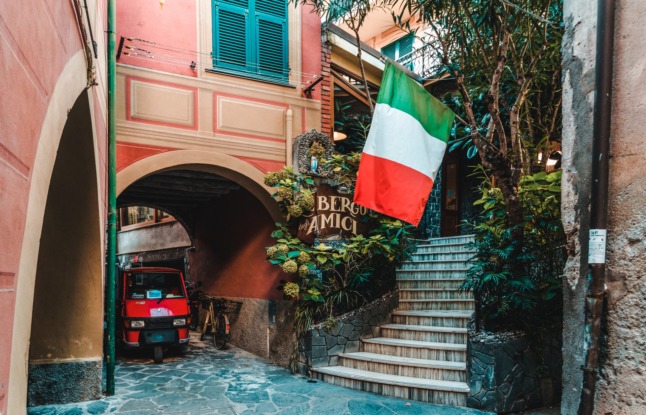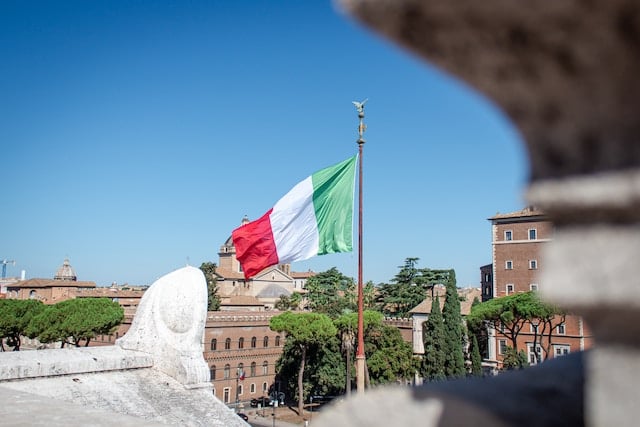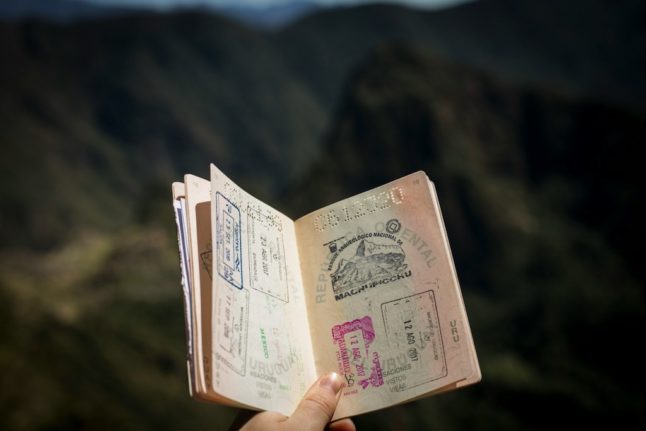There are many practical benefits to obtaining Italian citizenship – from making it easier to live in the country, either permanently or temporarily, to having the right to vote in Italian elections.
The Italian passport is also considered to be one of the world’s “most powerful”, granting visa-free entry or a visa on arrival to more countries in the world than almost any other.
And for some people, getting their Italian passport is simply a way of honouring their Italian heritage.
READ ALSO: How many people get Italian citizenship every year?
Whatever your reasons for wanting to apply for Italian citizenship, you’ll first need to know which of the three application routes you’re eligible to take.
Under Italian law, you can qualify for citizenship in one of the following ways:
- Ancestry
- Marriage
- Naturalisation (residency)
Let’s look at them one by one.
Scroll down to the bottom of the page for information on how to start the application process.
Ancestry
Because Italy allows its nationals to pass down their citizenship, citizens of other countries who have a grandparent, great-grandparent or other ancestor born in Italy may have a claim to Italian citizenship through what’s known as iure sanguinis, or ‘right of blood’.
According to the most recent official information from the Italian interior ministry, you may qualify if:
- You were born to an Italian parent, even outside Italy.
- You were adopted as a minor by an Italian national.
- An Italian parent legally recognizes you as their child (e.g., if your father’s name is absent from your birth certificate but he confirms that you’re his child).
- You were born in Italy to stateless parents, to unknown parents, or to parents who cannot transmit their nationality to their children.
There is no limit to the number of generations back you can go, provided you can prove that the line of citizenship is uninterrupted – i.e., that none of your ancestors renounced their Italian citizenship before their descendants’ birth.
READ ALSO: An expert guide to getting Italian citizenship via ancestry
In theory at least, you could claim citizenship via the paternal line all the way back to the founding of modern Italy in 1861 (though good luck finding those documents), or via the maternal line from 1948 (the late date at which Italian women were granted the right to transmit their citizenship to their children).
Anyone applying via the maternal line will need to be aware of something called the ‘1948 rule’ and how this could affect the application process. Find out more about that here.
If your claim to Italian citizenship is through a female ancestor that was born before 1948, the consulate will automatically reject your claim and you have to appeal. While appeals seem to have a high success rate, this is a complex legal process.
This online tool can help give you a quick idea of whether you might qualify for Italian citizenship via ancestry.

There is no requirement to prove any level of Italian language proficiency when applying via the ancestry route.
You can apply for citizenship via ancestry at an Italian consulate in your home country, or you can apply in Italy – including through a ‘fast track’ option.
Marriage
If you’re married to an Italian, you can file your application for citizenship:
- After two years of legal residence in Italy
- After three years if living abroad
This time is reduced by half if the couple has children (natural or adopted).
Note that you may want to begin gathering your paperwork before this point, as filing the application is a time-consuming process.
READ ALSO: Is your Italian good enough for citizenship?
Then you’ll need to wait up to three years for the application to be processed. The time limit for processing applications was increased in 2018 from two to four years and then changed again in 2020 to two years with a maximum extension of one additional year.
The 2018 law change also means that applicants must now take a B1 language test, and that applications from spouses can now be denied, and are automatically denied if they are not processed within the maximum timeframe.
If you’re a woman who married an Italian man before April 27th, 1983, congratulations: you got Italian citizenship automatically before the law was changed.
Reader question: Will Italian citizenship mean I have to pay tax in Italy?
You cannot apply for citizenship via this route if you’re divorced from your Italian spouse, if she or he has passed away, or if you’ve been convicted of certain crimes.
You can apply for citizenship via marriage at an Italian consulate in your home country, or in Italy by submitting your application to the interior ministry online.
Naturalisation (residency)
Once you’ve been living legally and continuously in Italy for a minimum period of time (and can prove it) you can apply for naturalisation as an Italian citizen, provided you don’t have a criminal record and can also demonstrate that you have sufficient financial resources to support yourself.
As with the marriage route, applicants must prove proficiency in the Italian language at B1 level or higher.
The minimum period varies:
- For most non-EU nationals, ten years.
- For EU nationals, four years.
- For refugees or stateless persons, five years.
- For people who have an Italian parent or grandparent, three years.
- For people born in Italy to foreign parents, either the first 18 years of their life or after three years’ legal residency as an adult.
The laws around naturalisation are complex and eligibility depends on your personal circumstances. Here’s a more detailed explanation of the rules.
This is the one route for which you must be resident in Italy in order to apply.
How to begin your citizenship application
Whichever route you are taking, you will need to speak to the Italian consulate in your country or the Questura (police headquarters) in your region of Italy in order to confirm the current application requirements and procedures, as the rules are subject to change and the exact documents requested can also vary from one office to another.
Applicants based in Italy can file their citizenship request online through the interior ministry’s online portal (available in Italian only).
READ ALSO: Eight of the most common mistakes when applying for Italian citizenship
If your application is approved, in the case of applications via marriage or naturalisation you will then need to provide the local prefecture in Italy (or the consulate if applying abroad) with the original copies of your documents. After that, you’ll have six months within which to take the oath of allegiance to the Italian Republic to complete your claim.
If you need assistance with the application process you may wish to seek advice from a qualified legal professional. If you’re living in Italy, you can also consult your nearest patronato office, which may also be able to provide practical help with filing your application.
Please note The Local cannot advise on individual cases. See more information in our Italian citizenship section.



 Please whitelist us to continue reading.
Please whitelist us to continue reading.
Member comments